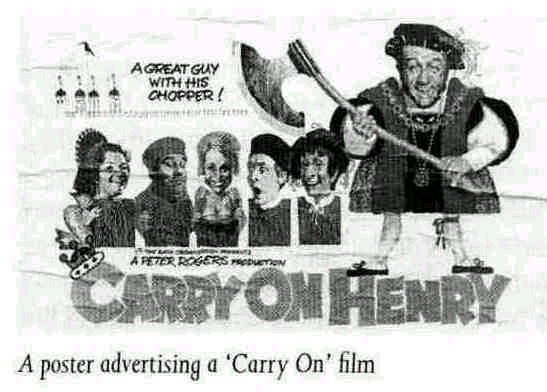
- •20 Food and drink 184
- •21 Sport and competition 191
- •23 Holidays and special 208 occasions
- •Introduction
- •10 I Country and people
- •12 I Country and people
- •14 I Country and People
- •2 History
- •16 2 History
- •18 2 History
- •It was in this period that Parliament began its gradual evolution into the democratic body which it is today. The word 'parliament',
- •20 2 History
- •22 2 History
- •24 2 History
- •26 2 History
- •28 2 History
- •30 2 History
- •32 3 Geography Climate
- •It was in Britain that the word 'smog' was first used (to describe a
- •36 3 Geography
- •38 3 Geography
- •40 3 Geography
- •Part of Snowdonia National Park
- •4 Identity
- •44 4 Identity
- •IrroubleatLllangybi
- •46 4 Identity
- •48 4 Identity
- •50 4 Identity
- •52 4 Identity
- •54. 4 Identity
- •5 Attitudes
- •58 5 Attitudes
- •60 5 Attitudes
- •62 5 Attitudes
- •64 5 Attitudes
- •66 5 Attitudes
- •In the history of British comedy,
- •6 Political life
- •68 6 Political life
- •70 6 Political life
- •72 6 Political life
- •74 6 Political life
- •6 Political life
- •78 7 The monarchy
- •The reality
- •84 8 The government
- •86 8 The government
- •88 8 The government
- •In comparison with the people of
- •9 Parliament
- •92 9 Parliament
- •94 9 Parliament
- •96 9 Parliament
- •100 10 Elections
- •102 10 Elections
- •104 10 Elections
- •I've messed up my life
- •Serb shelling halts un airlift
- •2 January is also a public holiday in
- •Identity 42—55
- •Illustrations by:
>
Carry on laughing there
is a special place for the Carry On series of films. Starting in the
late 1950s and continuing into the mid 1970s, there were twenty-nine
Carry On films. All of them used the same formula (and always with
more or less the same set of actors): a well-known situation or
place (a hospital, the army, the British empire in India) peopled
with absurd characters whose dialogue consists of almost
nothing but puns relating to sex or toilets.
Nevertheless, they became,
over the years, an essential part of British culture. Anybody who
went to see a Carry On film knew exactly what sort of thing to
expect. This predictability, in fact, was part of the enjoyment. The
jokes, so obvious and continuous, could often be spotted by the
audience before they came.
nearly half of the
schools in the country. Why? The most common reason was that
teachers simply felt too embarrassed to tackle the subject.
Similarly, public references to sex in popular entertainment are
very common, but they typically take the form of joking innuendo and
clumsy double-entendre (> Carry on laughing and see chapter 23). The
same mixture of tolerance and embarrassment can be seen in the
official attitude to prostitution in Britain. It is not illegal to
be a prostitute in Britain, but it is illegal to publicly behave
like one. It is against the law to 'solicit' - that is, to do
anything in public to find customers.
66 5 Attitudes
In the history of British comedy,

QUESTIONS
1 Frequent mention is made in this chapter of British individualism. How many examples of this can you find? Can you think of any others?
2 It has been said that the British are suspicious of things in public life which are logical or systematic. Can you find examples in this chapter which could be used to support this opinion?
3 Imagine this situation: you are at home, just about to have lunch, when there is a knock at the door. It is a British friend of yours, not a very close friend, but closer than a mere acquaintance. He or she has come to pay you an unexpected visit. You suggest that your friend comes in and stays for lunch. But your friend is embarrassed to find that he or she has called at
a mealtime and refuses the invitation. You want to persuade your friend to change his or her mind. Here are two possible ways of doing this:
A Please stay. We don't have much, I'm afraid, but we'd
be honoured. Whatever we have is yours. B It's no trouble at all. There's plenty of food. Don't think
twice about it. We're used to people popping in. Which of these two do you think would be a more successful way to persuade a British person? A or B? Why?
4 Which (if any) of the British characteristics described in this chapter would you regard as also characteristic of people in your country? To what extent?
SUGGESTIONS
• George Mikes' humorous books about the English, such as How to be on Alien, How to be Inimitable and How to be Decadent (all published by Penguin) are easy and fun to read. As they span thirty years, together they offer insights into changing attitudes in Britain.
• Read Notes from a Small Island by Bill Bryson, a humorous tour round Britain by an American who lived there for many years.
